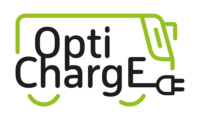OptiChargE – Optimised and automated charging management for battery electric bus fleets
The OptiChargE project is developing a data-driven optimisation of a charging management solution for battery-electric bus fleets.

The research project “OptiChargE – Optimised and automated charging management for battery electric bus fleets” aims to develop a data-driven optimisation of a charging management solution for battery electric bus fleets. Based on the collection of real charging and driving data, charging and consumption models are developed and integrated into a holistic and all-encompassing charging management solution. The software solution will be tested and further optimised for one year in a pilot operation on two bus routes operated by Albus in Salzburg.
The support programme EBIN of the Austria Federal Ministry for Climate Action, Environment, Energy, Mobility, Innovation and Technology aims to significantly increase the share of emission-free buses in public transport until 2026. As a consequence of awarded EBIN projects, public transport associations, such as Salzburger Verkehrsverbund GmbH, contract public transport fleet operators, such as Albus Salzburg Verkehrsbetrieb GmbH, to operate public transport lines with emission-free buses. Albus will operate two public transport lines in Salzburg with seven battery electric buses (BEB), starting in December 2023. These lines are the first ones for Albus to be operated with emission-free buses and therefore, serve as a pilot for a fleet up to 90 buses operated by Albus as well as 950 buses operated by the Dr. Richard group, that Albus belongs to. As for any bus operator, the operation of BEBs is challenging compared to fuel-powered buses.
Beside challenges concerning the installation and operation of the electric charging infrastructure including several power transformers and a photovoltaic array, the operation of BEBs is also challenged by an increased charging time compared to refuelling times of diesel buses and a reduced range resulting in reduced operational flexibility. Therefore, transport companies, such as Albus, have to significantly adapt their everyday operation processes when converting to BEBs. Currently, there is no integrated software solution available being able to manage a BEB fleet. Various solutions for managing different aspects of BEB fleets exist, e.g., telematic solutions, charging management solutions, and operational management solutions. These are typically operated in parallel and are not integrated. Therefore, digital gaps exist that must be closed manually, which is laborious and costly. Moreover, non-integrated solutions do not cope with the potentials of electrification such as optimizing energy consumption or energy cost.
The project OptiChargE aims at the data driven optimization of a charging management solution for BEB fleets. Based on the acquisition of real charging and driving data, charging and consumption models are developed and integrated into an all-in-one charging management solution. The developed software will be tested for a year in a pilot operation on the two bus routes in Salzburg operated by Albus.
Relevant project outcomes include the development of a holistic and automated charging management system which encompasses the development and validation of consumption models for pilot lines. Based on the results, operational optimization and scaling strategies to deploy BEBs on further bus lines will be derived. That includes the generalisation of the consumption model so that it can used for estimating energy demand on further bus lines where no data is available yet. The operational processes at Albus are evaluated to the requirements of BEBS, adapted and optimised. Finally, an impact assessment analysis will be carried out.
In future, the holistic software can be used by more bus operators in the public and private sector to facilitate the transition from a conventional to an electric fleet and to benefit from the advantages of the optimised and holistic approach.
The project relies on a selected consortium of partners with core competences in the relevant thematic areas and combines research results with practical experiences.
Role of Salzburg Research
In this project, Salzburg Research is responsible for the overall coordination, for the development and optimisation of the consumption models, which are integrated into the holistic charging management system, as well as for the implementation of the final impact assessment and the development of the scaling strategies.
This project is supported with the funds from the Climate and Energy Fund and implemented in line with the “Zero Emission Mobility” programme.






